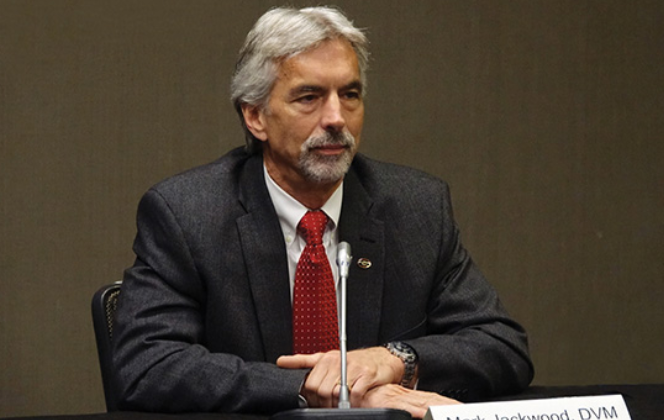



Poultry experts cite frustration with infectious bronchitis variants
New, variant strains of infectious bronchitis virus (IBV) in poultry will continue to emerge, but their control may depend primarily on strategic vaccination protocols that provide cross-protection from available IBV vaccines, panelists indicated at an industry roundtable, “Infectious Bronchitis: Evolving Strategies for an Evolving Virus.”
Mark Jackwood, PhD, a molecular virologist at the University of Georgia known for his IBV expertise, explained that IBV is an RNA coronavirus with a huge genome.
“When it replicates, it’s not very good at copying that genome, so [the virus] has a high mutation rate and it makes mistakes.”
The bottom line, he said, is that anytime IBV replicates, it’s changing. Whether those changes result in a virus that can have a selective advantage and become an economic problem seems to occur about every 5 years, Jackwood said.
‘Best of all worlds’
In his scientific opinion, a homologous vaccine administered properly offers the best of all worlds.
“It absolutely is. The problem we run into is like the one we have with [the relatively new IB variant] Delmarva/1639,” he said. “If we start trying to make a [commercial] vaccine today, it’s going to be probably 3 or 4 years until we have it on the market.
“So, we vaccinate with one or more strains of bronchitis virus to get as much cross-protection as we can. We probably get a lessening of the clinical signs associated with that, and everybody congratulates each other and says we did a great job. But meanwhile, the virus is replicating under the radar until it finally gets to a point where it surfaces again,” Jackwood explained.
Impact on mutation
Asked about the impact of vaccination on the evolution of IBV, Jackwood said it’s probably not fair to make a blanket statement that vaccine pressure will push the virus to evolve and mutate or emerge as a strain that will cause problems.
Although some studies would indicate that vaccines can accelerate the mutation rate of IBV viruses, other studies indicate the virus will replicate and change rapidly in the field without any vaccine pressure.
“If we do a good job of vaccinating like we’re supposed to, I think it actually helps with keeping the virus from replicating as much - and maybe instead of 5 years we can prolong it to eight years or ten years. The virus mutates; that’s what this virus does and we can’t change that,” Jackwood said.
‘Complicate the situation’
Guillermo Zavala, DVM, MAM, PhD, of Avian Health International and adjunct professor, University of Georgia, raised the possibility that while essential for effective control, some vaccination programs might contribute to IBV’s evolution.
He noted that poultry producers “can easily complicate the situation” when they are “dealing with an area heavily populated with birds from multiple companies and where eight or nine different vaccine strains are circulating simultaneously all the time.”
A planned strategy is lacking, Zavala indicated. In northeast Georgia, for instance, there are no fewer than eight different vaccine strains used every single day, he reported. Some companies spray vaccines with one, two or even three serotypes at the hatchery. Other companies boost in the field with yet another IBV strain.
“So, what does that actually do to virus evolution?” he asked the panel.
Practically speaking
Meagan Slater, DVM, said before she joined Mountaire Farms, she had experience with five poultry companies that had Delmarva/1639 in multiple polymerase chain reaction sequences. A couple of them experienced serious problems at processing as a result.
“We tried multiple vaccine approaches because of company preferences. Some opted for a generic, multiple-boost protection approach. Others tried both Georgia 08 vaccines. It was kind of a wash across the board. There were breakthroughs [of the virus] on every program, although I think generally people were happy because [the disease became] less of a problem,” she said.
But vaccination can’t do it all, she added. “Vaccination is going to decrease your clinical signs, but if the pressures in the environment are too high - decreased ventilation and other factors that come along with winter - it’s just not going to hold,” Slater said.
Reflecting on his experience at Sanderson Farms, David French, DVM, offered a practical assessment of managing IBV.
“I think we’d all agree that in a production scenario, we just want the problem [of IBV] to go away. We’ve got an issue, we’ve got mortality and we’re under pressure to fix the immediate problem.
“The choices we have might not include a homologous vaccine but a vaccine that might give us some protection and relief from the clinical signs we’re seeing.”












